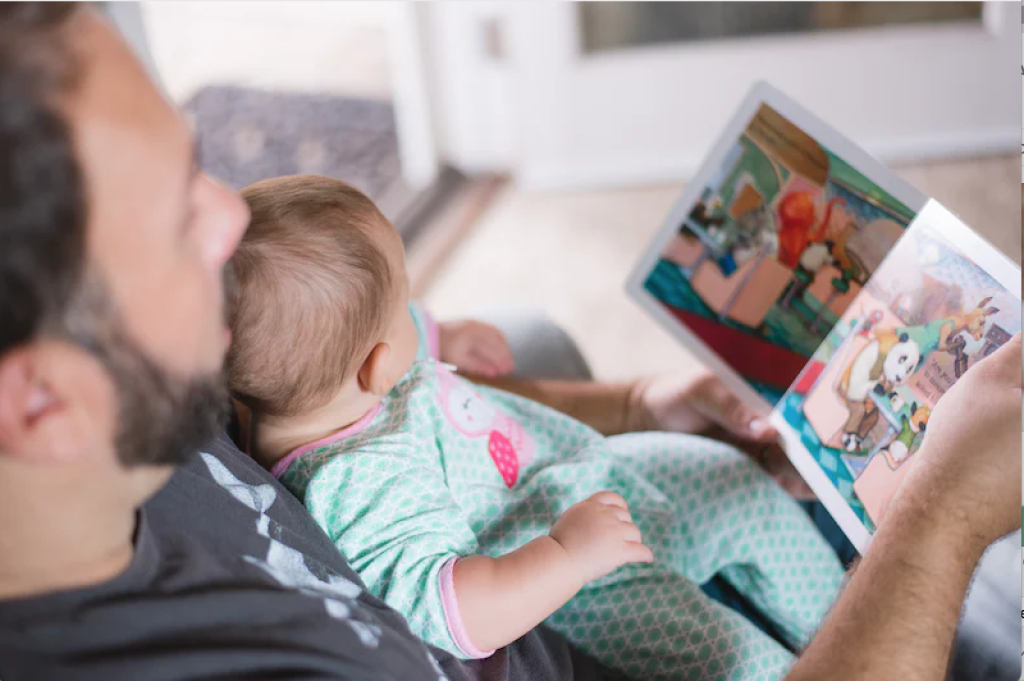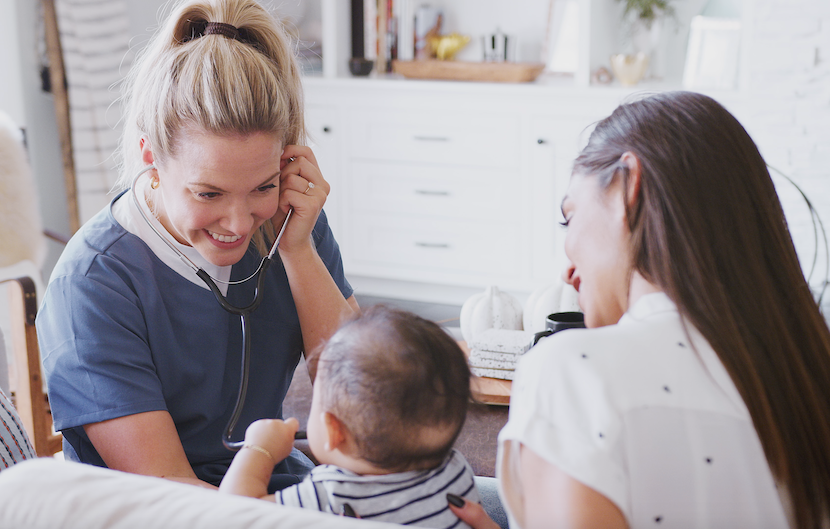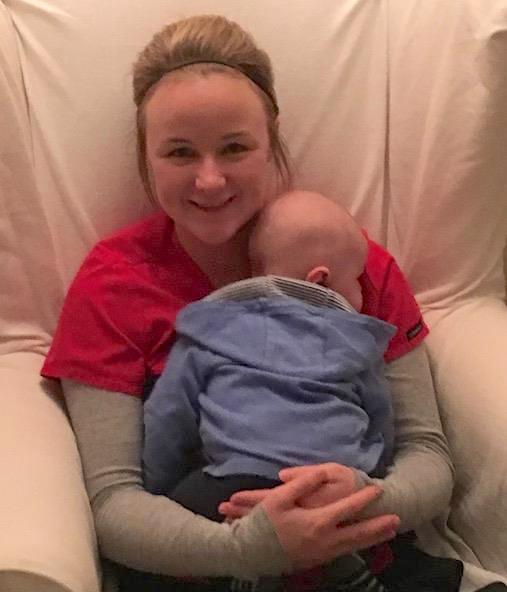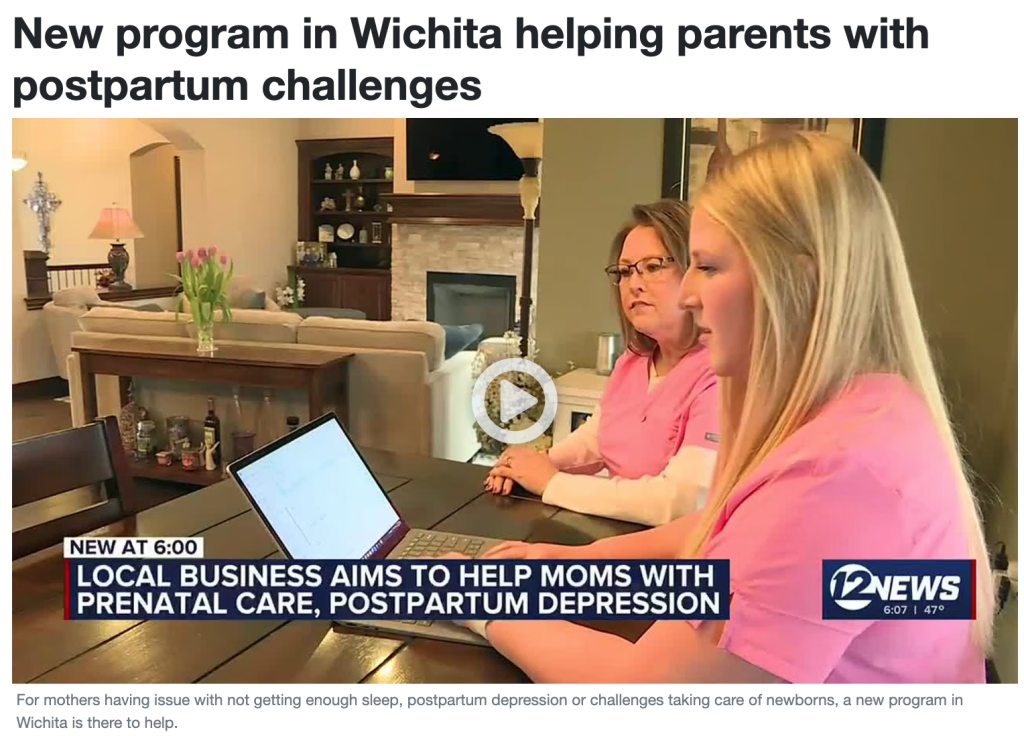Recent studies show that screen time should be avoided for newborns, infants and toddlers. The major reasons are because screen use can be associated with atypical development, and blue light impedes sleep and natural cycles. This blog, You Should Know: Blue Light, Screen Time and Babies goes into more detail about each.
You Should Know: Blue Light, Screen Time and Babies- Why it Matters
Screen use effects all of us really, but newborns, infants and toddlers and particularly vulnerable to the negative effects of screen time. Their systems are still immature so screens and blue light may take a greater toll.
- Potential Aggression and Behavioral Issues – Early screen use is associated with more aggressive behaviors.
- Possible Delayed Speech and Sensory Processing – When computers or TV’s are on adults say fewer words, giving infants less chance to learn speech.
- Developing Circadian Rhythm Disruption – Blue light exposure in the evening leads to confusion between day and night.
- Melatonin Suppression – Prolonged exposure to blue light after the sun goes down may interfere with the natural increase in melatonin levels, making it harder for infants and toddlers to fall asleep.
- Fatigue and Increased Potential for Retinal Damage – Visible blue light may potentially be harmful to the human retina as it puts increased stress on the receptors in the eye.

Infants and Screen Time
While your child may be just fine, it’s important to know that all major pediatric health organizations agree that newborns and young toddlers, babies age 0-2 years old, should not be exposed to screens. Behavioral issues, communication delays and atypical sensory processing are connected to early screen use. This is not to say screens cause these issues, just that they are associated.
As Pediatrician David L. Hill, MD, FAAP says: I hear a lot of parents say, ‘But my baby likes it!’ Infants may stare at the bright colors and motion on a screen, but their brains are incapable of making sense or meaning out of all those bizarre pictures. Babies learn to speak by watching us. So in addition to confusion at what they’re seeing on screen, the amount of words they’re hearing from us drops as well (AAP).
It can be so hard to keep your infant and toddler occupied though! Especially when we have other kids to care for, are working from home and have little to know family support. And how can we (and should we?) control what grandparents or other helpful caregivers are doing? While it sounds hard, the easiest way to limit screens may be to avoid them altogether; taking screens off the table means we have to find other options.
A Deeper Look at the Effects of Blue Light
Blue light is present in sunlight and is a natural component of the light spectrum. If blue light is already present in just about everything we see, why should we worry about limiting exposure in infants? The answer is because artificial exposure to blue light confuses infants’ immature systems.
Developing Circadian Rhythm Disruption – Blue light plays a significant role in regulating the body’s internal clock. We know this as the circadian rhythm. Like adults, newborns and infants rely on a stable circadian rhythm to promote healthy sleep-wake cycles every 24 hours, but babies’ little systems can easily be confused. Any overnight nanny will tell you it’s difficult to flip your sleep schedule because of the strong pull of our natural circadian rhythm!
Melatonin Suppression – Melatonin is the hormone that promotes sleep. Our bodies begin to produce it as a reaction to darkness at night. Because they are still developing, a child’s melatonin production is sensitive to blue light exposure and blue light, in particular, has been shown to suppress melatonin more effectively than other wavelengths. Prolonged exposure to blue light in the evening may interfere with the natural increase in melatonin levels. We see this as adults as well!
Poor Sleep Quality and Sleep Disruption – Melatonin suppresion delays the onset of sleep. This delay has a second effect of inhibiting the increase in sleepiness during night. In other words, babies have less restorative sleep.
Fatigue and Increased Potential for Retinal Damage – Babies’ eyes are still developing. Prolonged exposure to blue light from screens at a young age could potentially contribute to eye strain and discomfort. More research is needed to fully understand the long-term effects of blue light exposure on infants’ eye health but we do know it effects the retina in particular.
You Should Know: Blue Light, Screen Time and Babies – The Takeaway and What You Can Do
Screens are everywhere. While it’s difficult to eliminate them altogether, being aware of their negative effects can help parents make the right decisions for their family. Infants and toddlers have sensitive developing minds and bodies that are easily influenced, and as children get older monitoring the actual content becomes more important. Thinking about screen time will be part of your parenting for years to come.
Products are available to minimize blue light as well. Blue light blocking glasses can be used when working on the computer or phone. Screens which block blue light emission can also be placed on your device screens. There are lots of these on Amazon and they are very easy to use.










